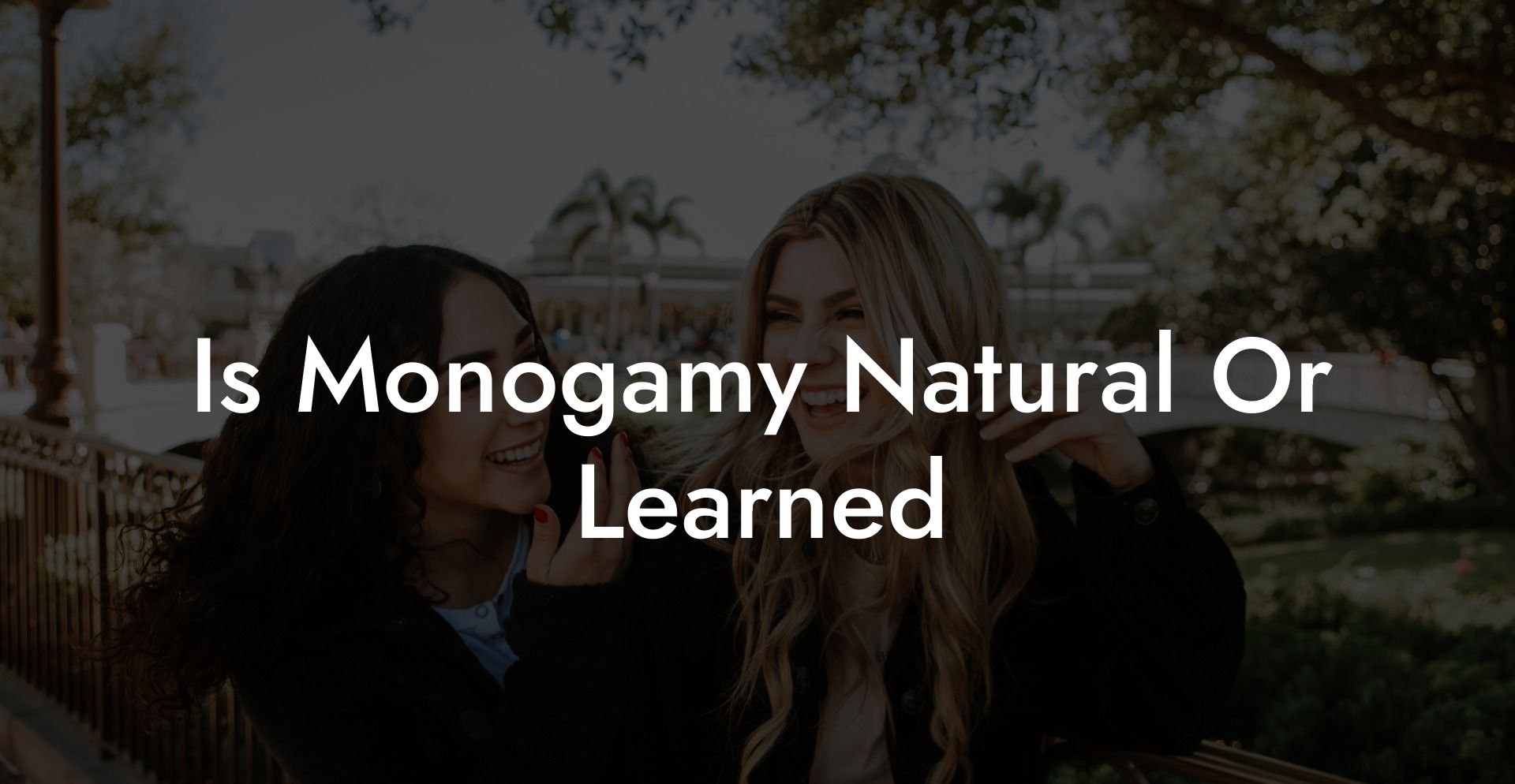Is monogamy a natural human tendency, or is it a concept we learn and adopt to fit into societal norms? This age-old debate has been the subject of countless discussions, scientific studies, and personal experiences. In this article, we will delve into the diverse aspects of monogamy and try to determine whether it's a natural human inclination or a concept embraced as a result of our upbringing and societal expectations.
Is Monogamy Natural Or Learned Table of Contents
Biological Perspectives on Monogamy
What Is Monogamy?
Monogamy is generally defined as a relationship where an individual has only one partner at a time throughout their life. It is the most prevalent form of relationship in many parts of the world, largely due to cultural and religious influences promoting monogamous relationships as the ideal standard.
Biological Perspectives on Monogamy
From a biological standpoint, monogamy is relatively rare in the animal kingdom. Only about 3% to 5% of mammals, and even fewer primates, exhibit monogamous behavior. However, proponents of the argument that monogamy is natural often point to the existence of pair bonds in certain species, where emotional connections keep couples together to raise offspring. These bonds are attributed to the release of oxytocin and vasopressin, hormones responsible for forming attachments in both animals and humans. Research has indicated that humans, too, experience increased levels of these hormones during bonding activities such as sex and cuddling, strengthening the emotional connection between partners.
Cultural Perspectives on Monogamy
Cultural influences play a significant role in shaping our understanding of relationships and what is considered appropriate or desirable. In many cultures, monogamy is promoted as the ideal form of relationship, rooted in religious teachings or simply a desire for social stability. This social reinforcement of monogamy can be so strong that it becomes ingrained in our sense of morality and right conduct.
However, it is crucial to recognize that not all cultures share this mono-normative perspective. Many societies throughout history and around the world have practiced forms of non-monogamy, such as polygamy, polyandry, or polyamory. While these alternatives may seem unusual to those accustomed to monogamous norms, they are equally valid expressions of human bonding and family structures.
Individual Choice and Personal Experience
Ultimately, the question of whether monogamy is a natural or learned concept may be a combination of both. It could depend on the individual's personal makeup as well as their upbringing and cultural environment. Some people may be biologically predisposed to prefer monogamous relationships, while others could gravitate towards alternative relationship structures, influenced by their own experiences and understanding of relationships.
It is essential to recognize and respect this diversity in human relationships, allowing each person the freedom to explore and engage in relationships that genuinely align with their preferences, needs, and desires. As society becomes more accepting of varied expressions of love and commitment, perhaps the debate over monogamy's naturalness will become less critical.
Is Monogamy Natural Or Learned Example:
An Open-Minded Couple's Adventure
Consider a couple raised in a conservative culture, where monogamy is highly esteemed. As they grow up, they begin to question the norms they were taught and explore different relationship structures together. After thoughtful discussion and negotiation, they decide to engage in an open relationship while maintaining their primary connection. For this couple, the monogamous model they were raised with was not their natural inclination but rather a learned concept they chose to challenge and adapt to their desires.
In summary, the question of whether monogamy is natural or learned is complex and multi-faceted. The answer likely lies in a combination of factors, including biology, culture, and personal experience. Instead of striving for a definitive answer, perhaps we should focus on understanding, embracing, and celebrating the diverse spectrum of human relationships available to us. If you found this article thought-provoking or you know someone else who might, please share it widely and check out other insightful guides available at The Monogamy Experiment.













